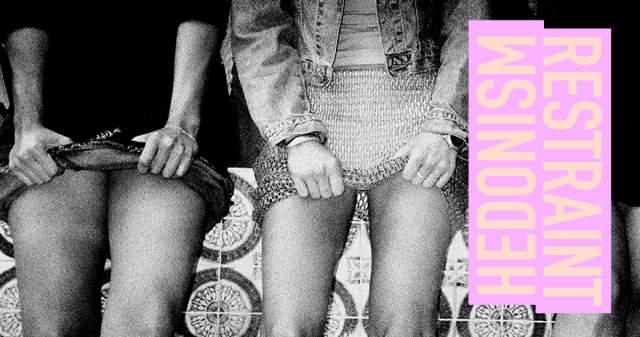IQ2 debate: could chastity save the 21st century?

It’s been said that as human beings, we have a reptilian brain that responds to certain primal urges. Food is one. Sex and reproduction is definitely another. This underlying, pre-programmed disposition to respond to sexual imagery is so strong that it has been used for over 100 years in advertising. And the industry, while abusing it more and more, would be foolish to ignore the draw of sexual and erotic messaging. In 1885, W. Duke & Sons, a manufacturer of facial soap, included trading cards in the soap’s packaging that included erotic images of the day’s most popular female stars. The link between soap and sex is slim at best, but it worked. And ever since, brands have purposely linked themselves to suggestive (or downright blatant) sexual imagery in the search for new customers. In a society that has such engrained and consistently proven values as ‘sex sells’, is it possible that chastity could “save” the 21st Century? This is the topic of a debate I attended, hosted by the Sydney Ethics Centre.
On the panel discussing the topic were Scott Stephens, Imogen Bailey and Justin Hamilton for the affirmative, and Rob Brooks, Nikki Goldstein and Alex Lee as the negative. With occupations ranging from comedian, model and sexologist to author, reporter and biology, there was certainly a good deal of intersectionality among the speakers that made for a diverse range of topics and subject matter. Naturally, it did not take long for the Ashley Madison fiasco to be dissected and evaluated for its value to the pop culture zeitgeist, and the conclusion was reached that we are all essentially puritans when it comes to anyone else’s sexual misfortune. And this serves as a prime example for any victim of the overzealous sex-shamer. And yet, for the pimps and pornographers of economics and advertising, sex is still the bait of choice. But at what cost? Sexologist Nikki Goldstein made some particularly interesting points about the role that shame plays in the proliferation of the ideal of “chastity”, and the harmful effects that is having on women in today’s society.
The “walk of shame” is a Sunday morning ritual: young women, hair matted and still in last night’s skirt and heels, trudge home post-hook-up. It’s a uniquely female ritual, and the term itself evokes a singularly female image. While men also have to go home after sex (I did a whole heap of ~research~ and it turns out that is actually true!), often disheveled and exhausted, there’s no shame attached to their commute. In a culture that imbues sexual activity in women with shame and judgment while applauding sexual prolificacy in men, it will surprise no one that women are more likely than men to report regretting sexual encounters. That so many women are making sexual choices shrouded in shame and regret is a public health problem that policy-makers have an obligation to take on, not just a moral issue suited to public debate and Sunday sermons. Shame and fear are bad positions from which to make healthy, affirming choices – if women believe that one-time sexual encounters are often regretful, there’s little incentive to prepare for them or to negotiate one’s needs within them.
Why bring condoms along on a night out if you believe having casual sex is wrong? Easier to just allow yourself a hormonal or drunken lapse. Why support abortion rights if everyone agrees unintended pregnancy is a deserved consequence of regrettable sex, rather than a relatively common but relatively preventable aspect of the human experience? If men believe that women who have casual sex aren’t worthy of respect and that drunken women are sexually available, it’s easier for everyone else to look the other way or blame women for their own victimisation when sexually assaulted.
Having attended the Ethic’s Centre debate on chastity, it was interesting to see what an enormous role shame played in our perception of sexual availability. Is it really the case that, in order to emancipate ourselves from the oppression of the media overlord, we can do nothing but submit, to redefine the terms to make everyone more comfortable? A stimulating suggestion stays with me, spoken by Imogen Bailey, who said ‘chastity is not avoiding what is natural, but abstaining from the modern obsession with the mass consumption of each other’. Perhaps in an age where sex really does sell, the feminist agenda has turned from burning bras to burning billboards.

